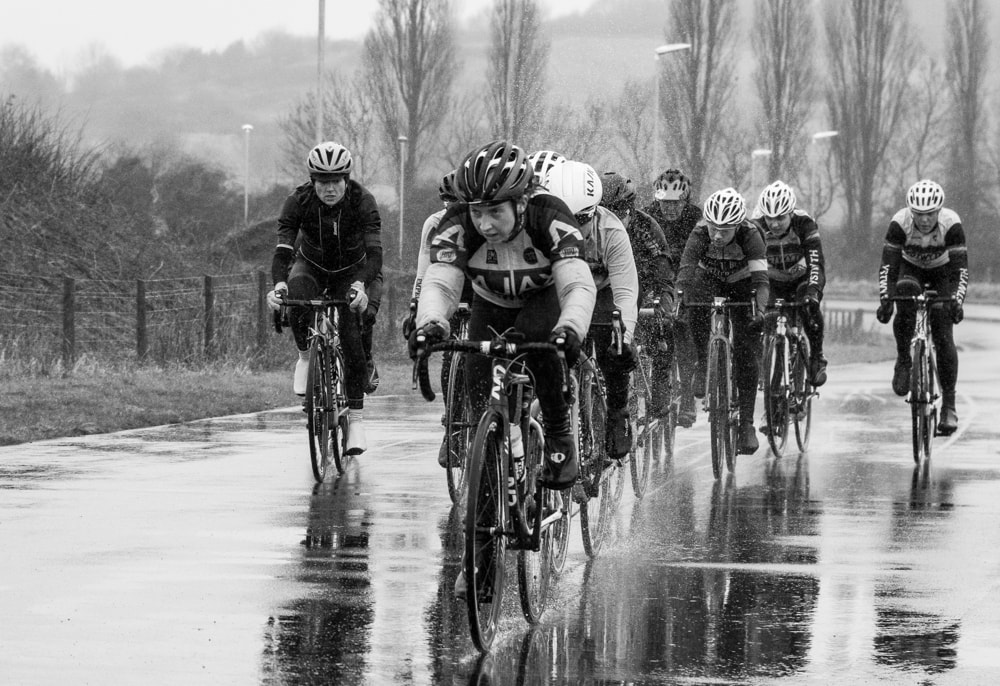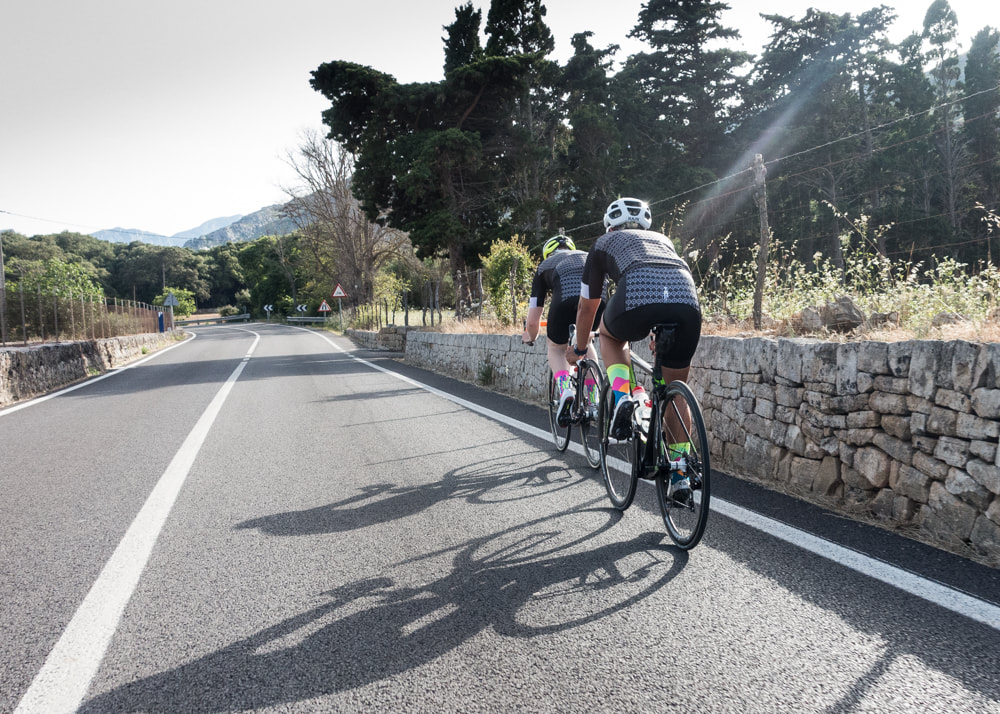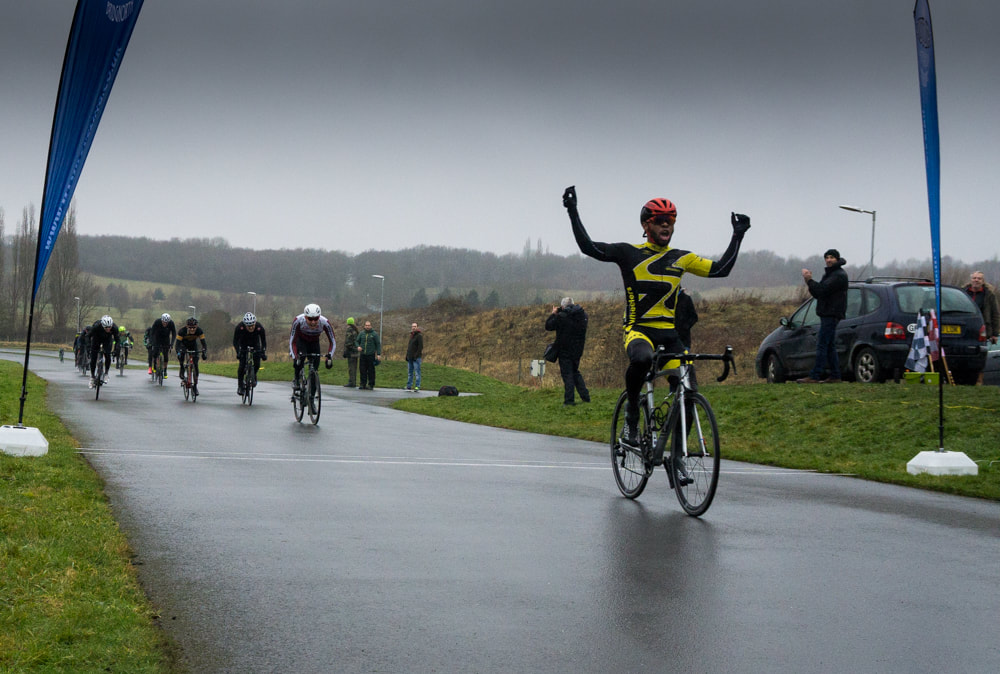|
About half my UK based riders (and me), have picked up a cold bug that seems to the doing the rounds at the moment. Now, I’m a bloke so when I’ve got a cold I don’t like to go on, and on, and on and on about it. Typically, I’m stoic and don’t like people to make a fuss… ahem. However, in the interests of ‘Bro-Science’ and at the risk of severe criticism for the total lack of either medical knowledge or peer review I thought I would, indeed, batter on about it for the dubious benefit of fellow sufferers. There is, at least in part, some good reason to my droning on in addition to just reaching for non-existent sympathy. I always tell my riders to rest when they’ve got a cold. I’ve never seen anybody improve their fitness training with a bug but I have seen it demolish hard earned fitness when people have trained whilst still showing symptoms. It risks increasing the chances of post viral fatigue and all sort of nasties. In addition, I coach the GB Transplant Team who are purposefully immunosuppressed to mitigate organ rejection so I’m naturally cautious. I’m as sure as I can be that the ‘it’s fine to train if the cold is above your neck’ trope is bollocks – a virus doesn’t know or care if it’s affecting just your head or not, you feel shit because of your immune response to the virus, not the virus itself, it’s almost certainly resident in the whole of your body. The same virus can effect two people in different ways. Colin has given me a right battering. I did an FTP test just before it got hold of me so I know where my aerobic endurance level was before being infested with this vile pathogen. I’ve tracked the time its taken me to get back to what I laughingly refer to as ‘fitness’ using power (output measure) and HR (input measure) data for the middle 8 minutes of a sweetspot session (88-93% FTP) interval (table below). The good news for me, and you if you’ve picked up the same bug (and it’s affecting you in a similar way), is there does appear to be some light at the end of the dark snotty tunnel.  So, it’s taken me the best part of 4 weeks (25 days) to go from picking up the virus to being back to where my FTP test indicated I should be pre-cold. Fundamentally, whilst I felt okay but was seemingly recovering from the bug on 19th January, I needed more input (164 bpm) to produce less output (215w). I was trying hard but getting nowhere. By 30th January, less input (153 bpm) was resulting in more power output (245w). I was, at least by my standards, getting there. Interestingly, after I'd caught the bug but before I was symptomatic, I needed a fair bit more input (166 pm) for the same output (245w). I say it's 'interesting' but you'll be the judge of that. Not remotely representative I know (52 year old, reasonably well trained if immunosuppressed male) and you can’t generalise anything from this anecdotal ‘evidence’ so I will do just that, generalise…
Thanks for listening, sniff… Rich
0 Comments
I nearly tied myself in knots defining this. I mean, we’re all getting older aren’t we? I’m older now than when I first started writing this piece. Verbally untying myself, I’m referring to riders over the age of 50, irrespective of sex, skill level or previous training history. Cycling is a sport you can enjoy into genuine old age – there are 70 and 80 year olds on the same start sheet as 14 year olds at my club time trial. The days when you retired at 65, played two rounds of golf and keeled over are, thankfully, long gone. However, whilst age is not usually seen as a natural performance enhancer it shouldn’t be viewed as something stopping us from getting faster on the bike. It’s achievable, it just takes application. The Principles of Conditioning (adaption, overload, progression, recovery, reversibility and specificity) apply to older riders as much as younger ones, as do the components of fitness. The effective application of these principles lies in their thoughtful, sequenced deployment to the individual. I’ll explore the specifics with reference to older riders in more detail another time, but for now it’s worth looking at some broad areas. Psychological This is a much neglected area, and getting it right can give you more sustainable, long term satisfaction and fulfilment out of your riding. There are many commonalities around why people ride but the fundamental drives are often different with older riders. I’m risking over characterising here, but younger riders often want to race although they might not be entirely sure (or even care) what they want to compete in. The primary drive is to win. This is natural, they’ve got the time to discover what they’re best at and they haven’t had the chance to experience the whole of the competitive playing field. They calculate risk in a different way. Sometimes, they don't calculate risk at all. Some older riders want to race, but the drives may be different e.g. fitness, weight management, riding in sportives, social, getting in shape for a week’s riding abroad – the list is endless. Having a few years under your belt can bring a clarity of focus about what you want to get out of your cycling and it’s worth spending a bit of time exploring this. Conversely, if you’ve forgotten why you ride and your motivation, commitment and enjoyment of the sport has ebbed, maybe it’s time to find where you left your mojo. You might want some support in looking at the pillars of sports psychology notably, goal setting, imagery, self-talk and anxiety control/stress re-framing if this is an area you feel has been holding you back. With some work, this could improve your results or, equally importantly, your enjoyment of cycling. Physiological Older riders have different types of engines. Some well trained and tuned, other less so. The adage that riders don’t train hard enough when they train or rest well enough when they rest becomes more relevant to the older rider. Your ability to train hard when needed coupled with effective rest is paramount to developing and building resilient rather than transitory fitness. It needs careful analysis of your performance data and thoughtful planning. Fitness takes a little longer to develop with older riders and training needs to fit around real life, not supplant it. Your training will need to be specific, targeted and measured. The knowledgeable use of a power meter and a heart rate monitor is, in my view, pretty much essential. Youth brings a natural ability to adapt and, at a pinch, young riders can cash in their genetic youth tokens and avoid doing the supporting activities that are so important to older riders. It’s the little things like active (as opposed to passive) recovery, developing your core strength, stretching, hydration, nutrition, weight bearing exercise, strength and conditioning and the like that become so important. An injury and illness prevention strategy will mean more consistent and effective training as will recognising the importance one of life’s most vital performance enhancers, good quality sleep. In short, do all the right things to support your 'on the bike' training and you will be a better, faster cyclist. Technical This is particularly important if you’ve come to cycling as an adult rather than as a child. As a kid, skills acquisition, balance and judgement come from playing on your bike, riding off curbs, keeping up with your mates, riding on different surfaces and leaving chunks of skin on them. As an adult you’re not allowed to get your bike out of the garage and play, you’re scared of what the neighbours will say. Youngsters who aspire to ride at elite level often ‘play’ by spending hours training and racing on the track – this can be an intimidating and unforgiving environment for those of us with a few years under our belts. But finding the right environment to develop your skill level will ultimately make you a more efficient rider and can be a rewarding experience. There’s a lot of satisfaction in mastering and executing a new technique. If you think I can help you get more out of your cycling then get in touch – if nothing else, age brings a little wisdom and we might learn something from each other. Rich Smith is quite old and knows a few things about getting older after practising for the last 52 years. He still ascribes to his father’s view that whilst getting older presents certain challenges it is better than the alternative. He has coached the GB Transplant Cycling team for 10 years, is a British Cycling qualified Level 3 coach, a mature psychology student and in a previous life, has 30 years’ experience working in senior roles for Barclays, HSBC, British Waterways and National Grid Property.
Goals - ‘The object of a person’s ambition or effort; an aim or desired result’*. Snappy eh?
You’ll see lots of stuff about goal setting for the upcoming season and the importance of making them SMART at this time of year. At least, I hope you will. Goal setting is 1.0 on the Level 3 Cycling Coaching qualification and, collectively, we coaches bang on about them a lot. And rightly so, goal setting works because at a psychological level they direct attention, they mobilise effort, they increase persistence and they encourage the development of positive responses to obstacles in our training. So, sure, they’re important, but we can miss a couple of fundamental things right at the beginning of the goal setting process. Make them yours. Your goals have to be your goals, not just the ones that fit neatly into what your coach wants them to be because they are measurable. Setting measurable goals is easy but if they don’t match what you, in your heart of hearts, actually want to achieve, they’re going to be ineffective. So, spend some time with them, sleep on them, get comfortable with them and develop them with a mind to their resilience. Goal setting is best if it’s an iterative process, so don’t be afraid to ask your coach to challenge you on them, try to find weaknesses with them and thereby improve their quality and resilience. Do this, and they will serve you well. Most riders can find the motivation to train in early January. We’ve demolished the last of the Roses chocolates and the remnants of the blue cheese has gone in the bin, but by the end of the month things are looking a bit tougher and motivation tends to fade. At this point you’ll need to rely on commitment rather than motivation. If you’ve set goals that overemphasise their SMART characteristics but underplay what actually gets you on the turbo after work, they’re not doing their job. Training hard for the sake of training hard is rarely tolerable in the long term and commitment to your goals is vital in the moments your motivation heads in the same direction as the blue cheese. Get in touch if you want to talk your goals or 2020 training through… *OED definition. Anecdotally, whilst I was eating the corporate sandwich for one the big banks, a colleague set a work related performance goal of ‘doing away with his earthly body by turning in to a pure form of energy’. Disappointingly, this was deemed unacceptable by the powers that be. Cheers. Rich |
AuthorThe ramblings of a cycling coach... Archives
May 2024
Categories |
|
© COPYRIGHT 2022. ALL RIGHTS RESERVED.
|



 RSS Feed
RSS Feed
